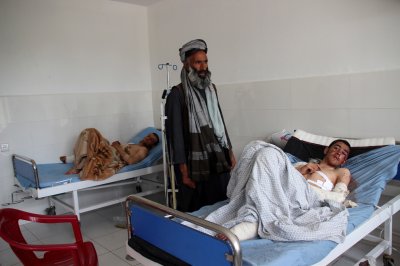Topic: Abdul Haq
Abdul Haq (born Humayoun Arsala; April 23, 1958 - October 26, 2001) was an Afghan Pashtun mujahideen commander who fought against the Soviets and Afghan commmunists during the Soviet-Afghan War. He was executed by the Taliban in October 2001 while trying to create a popular uprising in Afghanistan in the wake of the September 11th attacks.
Haq was born in Fatehbad (Afghanistan), a small village in Nangarhar province, Afghanistan, although he soon moved with his family to Helmand. His father, Mohammed Ana, was the representative in Helmand for a Nangarhar construction company, and was relatively wealthy by Afghan standards. His family was well connected, part of the Arsala Khel family, which is a part of the Jabar Khel (a subtribe of the land-owning Ahmadzai tribe). His paternal great-grandfather, Wazir Arsala Khan, had once been the foreign minister of Afghanistan; a cousin, Hedayat Arsala, was a World Bank director working in Washington D.C. who later became Vice President of Afghanistan in Hamid Karzai's administration. Haq also had two older brothers: Haji Din Mohammad and Abdul Qadir. Abdul Qadir was an early backer of Hamid Karzai, who was rewarded with a cabinet position, before he was assassinated in 2002. Din Muhammad is the leader of the Hezb-i-Islami Khalis party.From his own account, Haq was an unruly child, who after persuading his father to register him for school at the early age of five, once hit a teacher who was sleeping on the job. A year after that his 51 year old father died of kidney disease, prompting Din Mohammad to assume leadership of the family, and prompting the family to move back to their extended family in Nangarhar.
Back in Fatehbad, Haq began attending Koranic school under the tutelage of local mullahs, and once reaching the age of eight, began studying at the lycée. It was here where he started challenging the Communist ideology of some of his teachers.
It uses material from the Wikipedia article "Abdul Haq."






